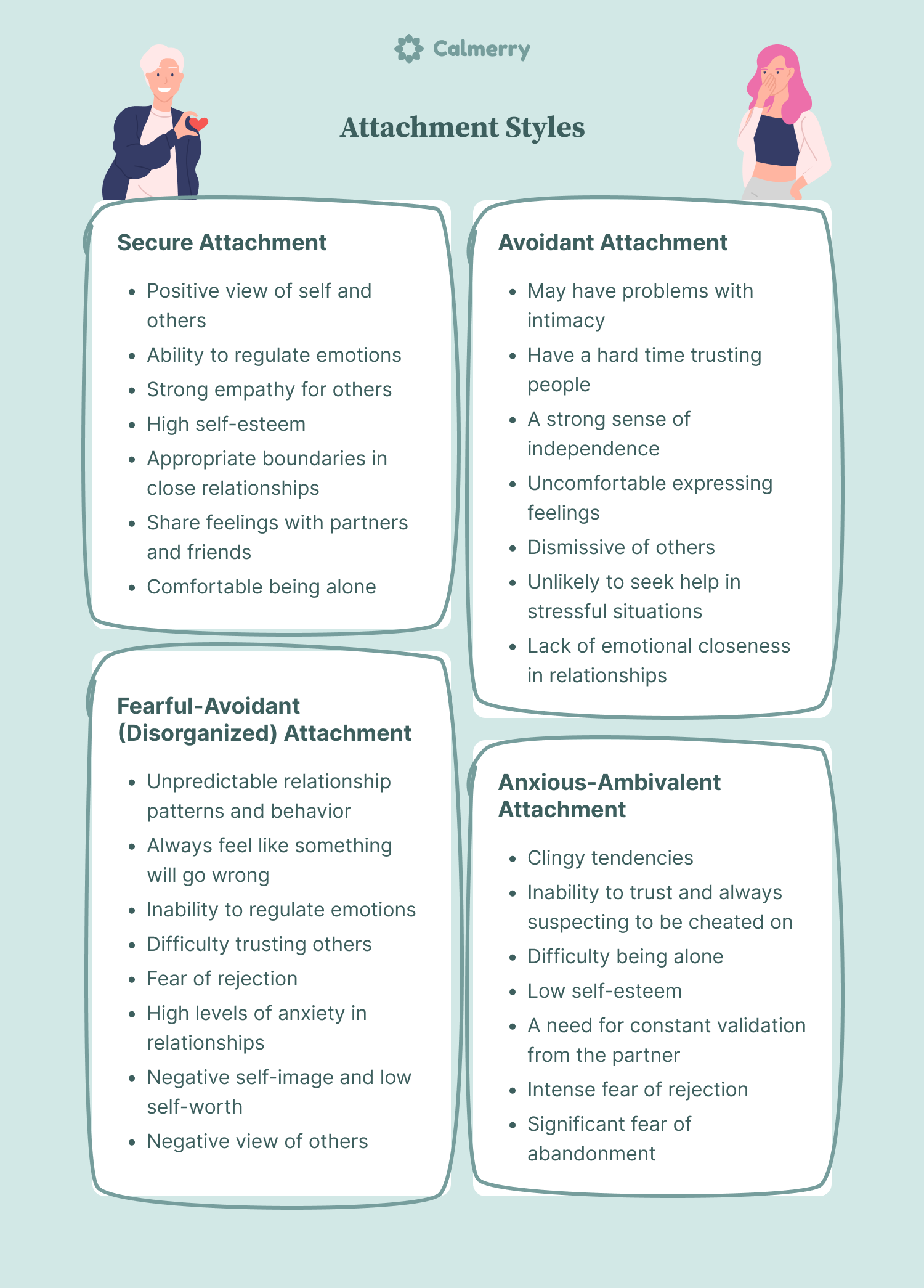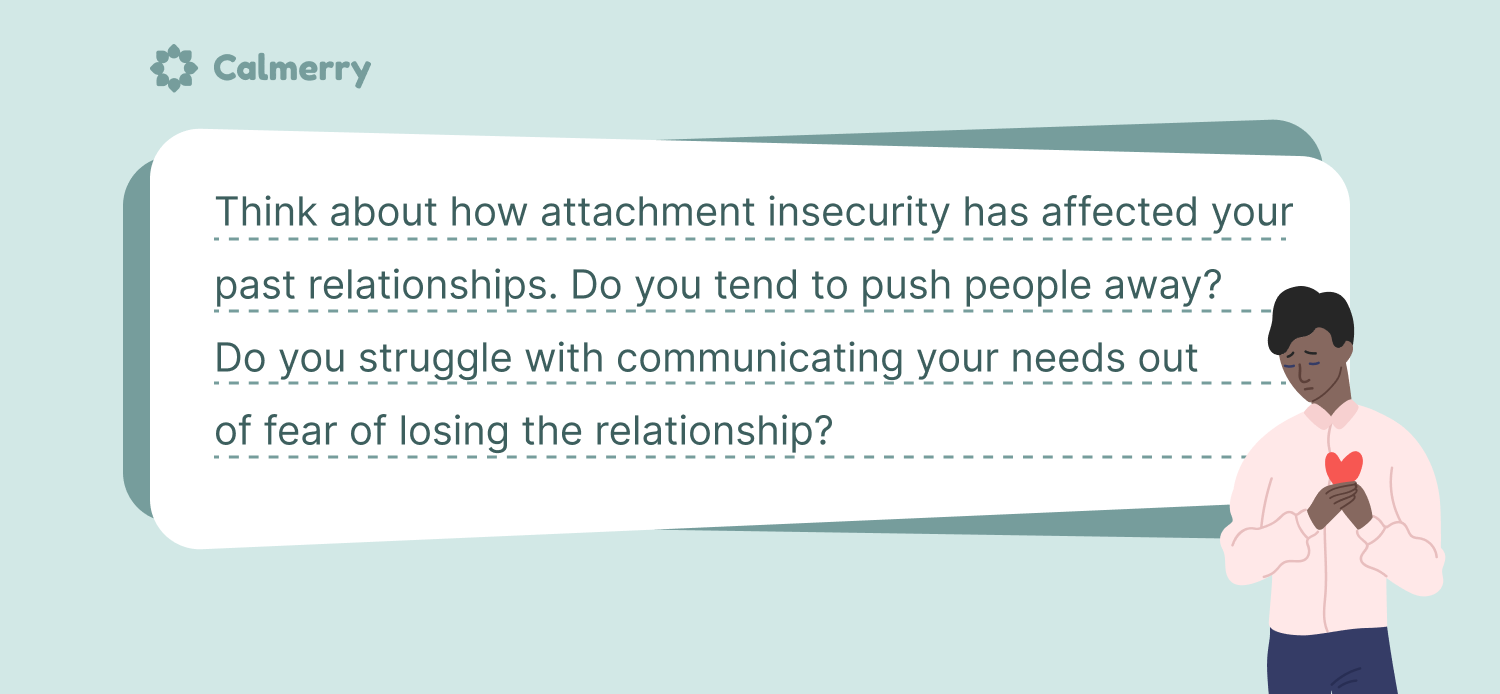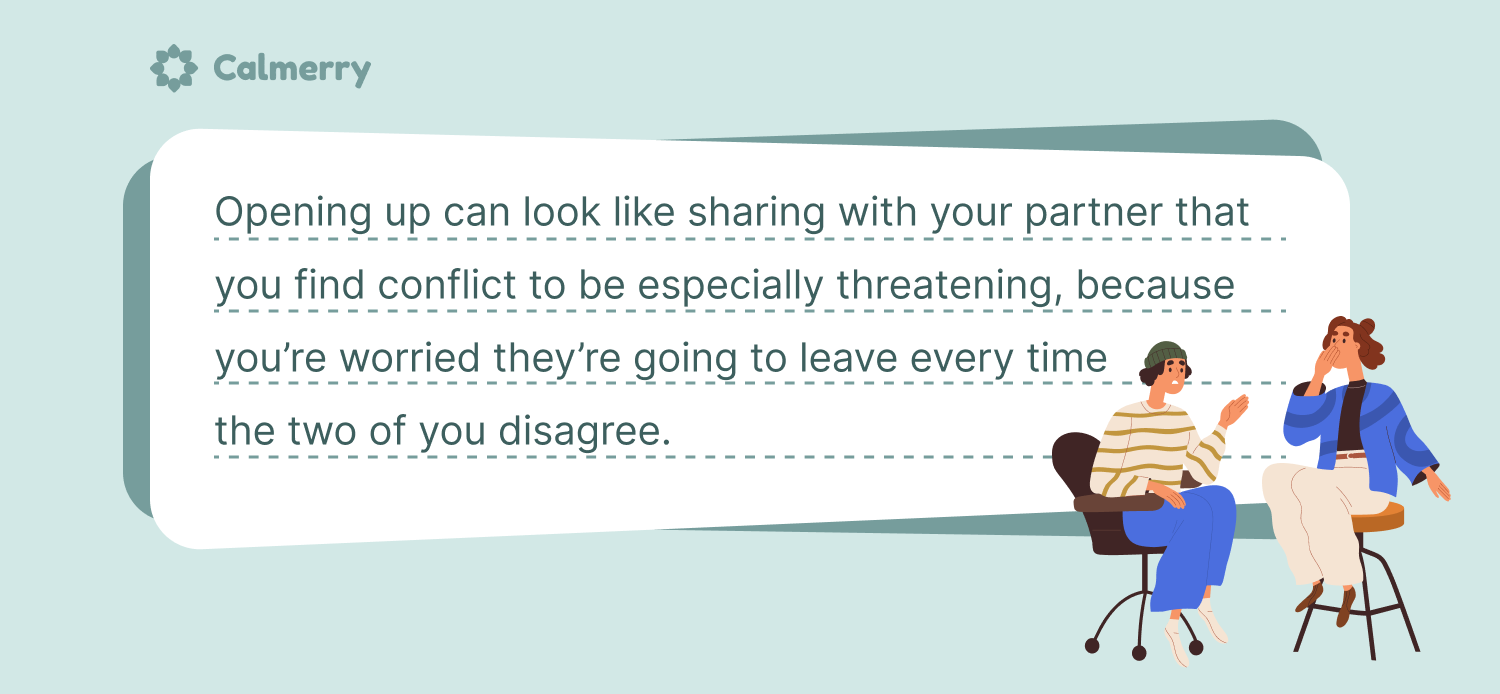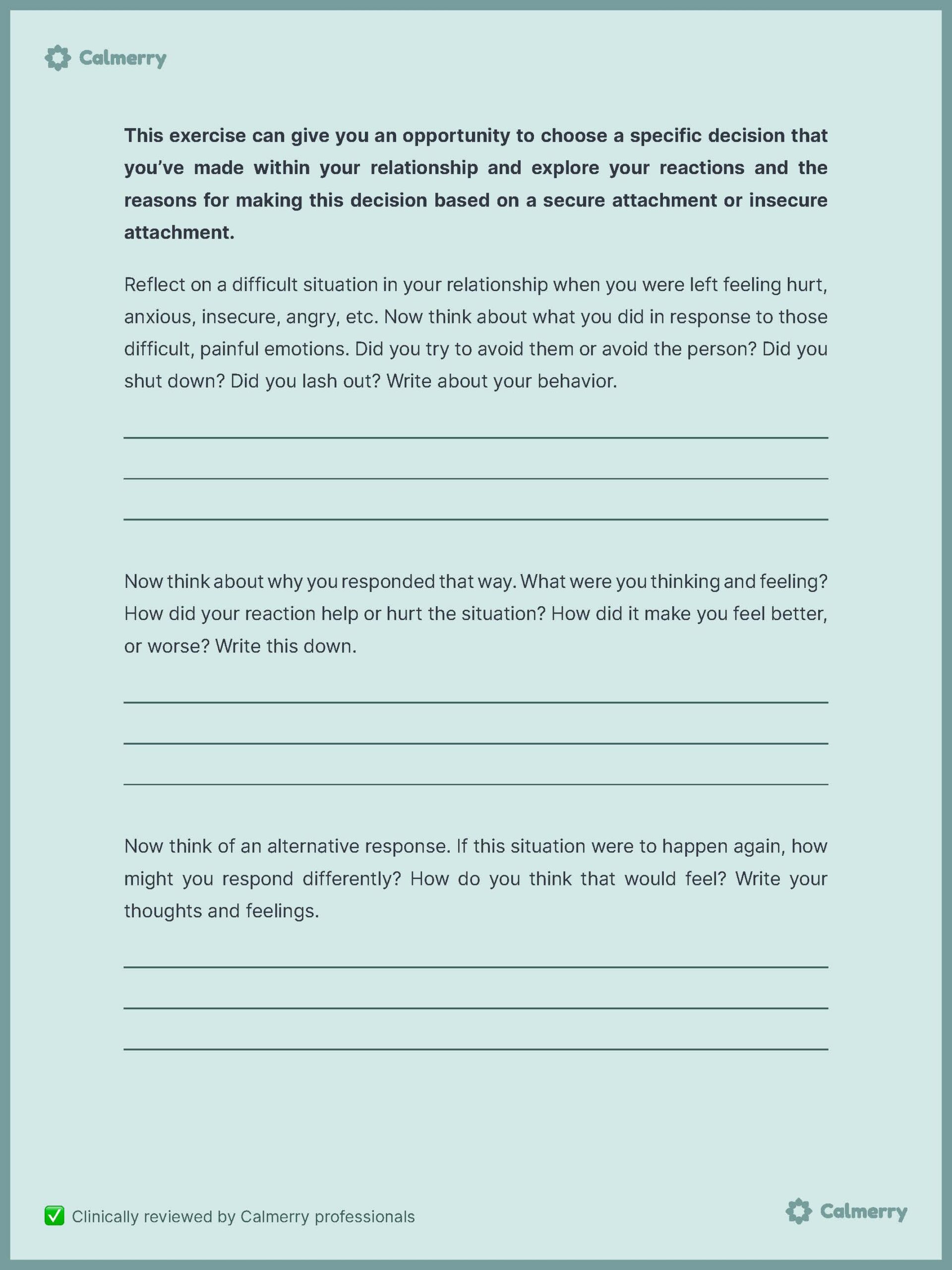8 Strategies for Coping With Insecure Attachment in Relationships

In this article
In secure relationships, partners feel safe connecting with each other, and they are confident that they can turn to their significant other in times of stress. On the other hand, insecure attachment can lead to difficulties with forming intimate bonds with others, thereby interfering with the formation of healthy relationships.
If you tend to be insecure in love, including relationship counseling, there are strategies that can help you to overcome your insecurity and develop a closer relationship with your significant other. Understanding attachment issues and how they develop is helpful for those who struggle with insecurity in their relationships.
Below, learn how to get over attachment issues, and watch your relationship improve.
Secure vs. insecure attachment
Before diving into strategies for developing more secure relationships, it’s helpful to have an understanding of the difference between secure and insecure attachments. A secure attachment pattern develops when people receive support and reassurance from their parents during childhood. Over time, this leads a person to believe that they are safe and that important people in their life will reliably meet their needs.
When a person has a secure attachment, they develop a sense of confidence in themselves and their relationships. They can be close to others without fear of rejection, and they don’t worry about their partner leaving them or hurting them. Ultimately, this leads to an emotionally stable relationship.

On the other hand, someone who is exposed to traumatic experiences or neglect as a child can become fearful of attaching to others, or they may avoid attachment altogether. When a person has anxiety and fear related to intimate relationships, they are said to have an insecure attachment pattern.
A pattern of insecure attachment can interfere with relationships because you may engage in behaviors like shutting down in the face of conflict, withdrawing from your partner, or becoming overly clingy because you are afraid of abandonment.
Strategies for overcoming insecure attachment
Through the development of new skills and habits, you can learn how to overcome attachment issues. Consider some or all of the strategies below to help you learn to cope with insecure attachment.
Develop awareness of your patterns
The first step in growth and healing is coming to an awareness of unhelpful patterns. Think about how attachment insecurity has affected your past relationships. Do you tend to push people away? Do you struggle with communicating your needs out of fear of losing the relationship?

Take a look at problems that have cropped up repeatedly in your relationships. This allows you to develop an awareness of the negative patterns you’ve developed in response to insecurity in your relationships. Once you recognize these patterns, you can take steps to address the specific behaviors that have become problematic for you.
Take time to reflect
When you realize that you struggle with insecurity in your intimate relationships, you’re better prepared to reflect on your responses to your significant other. The next time you’re engaged in conflict or feeling anxious, consider whether you’re responding to what is going on in the present or reacting because of past wounds.
For instance, if you’re anxious because your partner has come home late, consider whether you’re truly worried about your partner’s behavior, or if you’re simply triggered by past trauma. If you have a history of caregivers or other important attachment figures letting you down, your partner’s innocent act of letting a work meeting run a little late could trigger abandonment fears in you.
Pausing to reflect can help you to do a better job of regulating your emotions, which can be an important part of overcoming attachment fears.
Reflecting on responses to your significant other can help you better manage your emotions. This skill is very important for overcoming attachment fears.
Download this worksheet 👉 Secure vs. Insecure Approach to Making Decisions in Relationships that can give you an opportunity to reflect on a difficult situation in your relationship when you were left feeling hurt, anxious, and insecure. Explore your reactions and the reasons for making a specific decision based on a secure attachment or insecure attachment.
Practice calming strategies
People who struggle with insecure attachment may have difficulty with emotional regulation. This is because they can perceive conflict and any form of rejection from a partner as being particularly threatening.
If you want to learn how to get over attachment issues, it’s important to help yourself develop the skills for remaining calm when faced with relationship conflict. You might use strategies such as taking a break when you become overwhelmed by a conversation, or practicing deep breathing or progressive muscle relaxation.
As you become better at using calming strategies, you will find that you become less distressed in the face of conflict with your significant other.
Develop a mindfulness practice
Since being insecure in love can lead to anxiety and difficulties with regulating negative emotions, it can also be helpful to practice mindfulness . Mindfulness practices allow you to become attuned to the present moment, without passing judgment or worrying about the past or future.
These practices are beneficial for reducing negative emotional states like anxiety and depression, and they can help you to feel less anxious in the context of intimate relationships. You can learn mindfulness by watching online videos or by taking up the practice of yoga or meditation.
You may be able to find a mindfulness-based yoga practitioner at your local gym or fitness center. Connecting with others in this setting can also be helpful for overcoming attachment anxiety.
Open up to your partner
Being vulnerable with your significant other is a critical component of having a healthy relationship. This means sharing your life story and history with each other, including any problems you struggle with in relationships.
We often enter a new relationship assuming that our partner already knows where we’re coming from and how to meet our needs, but this isn’t the case. It’s important to communicate with each other about fears, anxieties, and emotions as they arise, so you can work through them together.
As your relationship progresses, you’ll learn each other’s needs, but your partner cannot possibly know these needs unless you communicate them. Opening up can look like sharing with your partner that you find conflict to be especially threatening because you’re worried they’re going to leave every time the two of you disagree.

Focus on your strengths
Being insecure in relationships can arise from a place of low self-esteem. You may feel negatively about yourself, so you constantly worry that your partner also views you negatively.
To overcome low self-esteem and its negative effect on your relationship, take a moment to focus on your strengths. You might consider what your best friend or your grandmother would say about you.
When you remember your strengths, your entire mindset will shift. You’ll begin to realize that you do have something to offer to your partner, and you’ll be a little less insecure about attaching to them.
Take small risks
When you’re accustomed to being distant in relationships in order to protect yourself, things like having a deep conversation, taking time to express your needs, or sharing moments of connection can seem intimidating.
You can overcome issues related to insecure attachment by being intentional about taking risks in your relationship. The next time you feel uneasy about opening up to your partner, take the risk of doing it anyway. Over time, this practice will become a habit, and connecting won’t seem as terrifying.
Learn the art of self-compassion
When you’re struggling with insecure attachment problems in your relationships, it’s easy to be hard on yourself. You may start to feel as if you are somehow flawed or unworthy of love.
Instead of viewing yourself in such a negative light, try to practice some self-compassion. Often, insecure attachment styles come from a place of deep pain, and you can’t blame yourself for trying to protect your ego from additional hurt. Be kind to yourself as you navigate the complex world of relationships, and don’t forget to take time for self-care.
How therapy can help
If you’re struggling to learn how to get over attachment issues, you may benefit from working with a therapist. Self-help strategies can be beneficial for some people, but if you are living with deep anxiety or unresolved trauma, professional intervention may be warranted to help you learn healthier coping strategies.
In therapy sessions, you will have a safe setting for processing your emotions and beginning to heal any childhood wounds that have contributed to an insecure attachment style. Your therapist can help you to identify unhelpful patterns and learn about the reasons for anxious or avoidant attachment styles.
Therapy sessions also provide you with a setting for identifying and correcting any distorted thinking patterns that are leading to insecurity in relationships. In addition, a therapist can help you to role-play challenging conversations or skills that you can then implement in your relationship.
When you’re ready to explore therapy options, online therapy can be an attractive choice. This modality allows you to connect with a therapist virtually, using web cameras and video chatting technology, so you can receive professional support from the comfort and convenience of home. You’ll also have privacy as you share deeply personal issues with your therapist.
At Calmerry, we offer online therapy sessions with licensed, credentialed mental health professionals. Visit our website to learn more about our therapy services or to connect with a professional. We’ll match you with a mental health professional who fits your needs today.
online therapy
live video session



